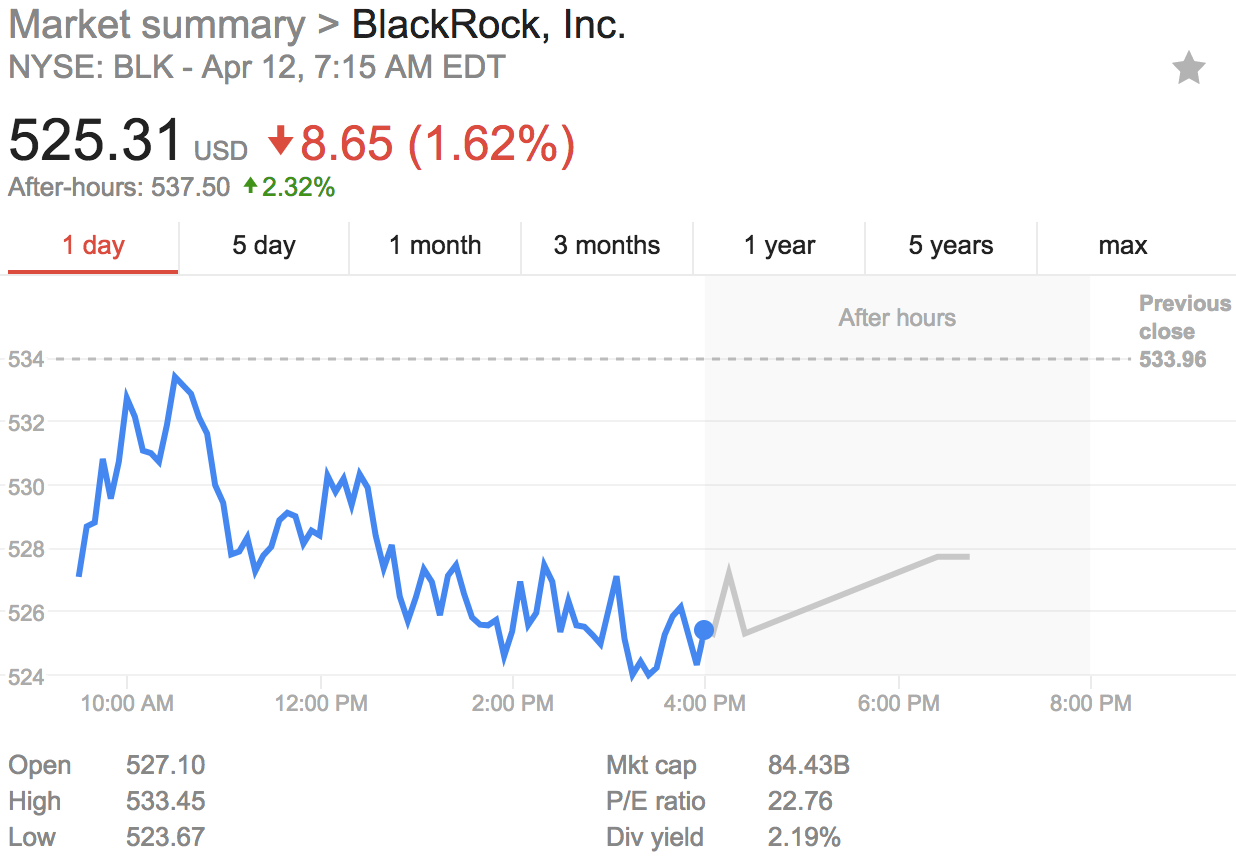Reports
BlackRock Climbs To AuM Record; Revenues Rise

The fund management giant reported a broadly strong set of figures for Q1, taking some of the market turbulence of recent weeks in its stride, its CEO said.
BlackRock, the
world’s largest listed fund management business, today reported
that total assets under management rose 17 per cent year-on-year
to $6.317 trillion in the first three months of 2018, while net
flows for the quarter came in at $56.95 billion.
The US funds behemoth said Q1 revenues rose 16 per cent in Q1
from a year ago to $3.583 billion; net income for the period rose
27 per cent to $1.092 billion. Earnings per share, on a diluted
basis, rose 28 per cent to $6.7 per share, it said in a
statement.
Larger than sovereign wealth funds, for example, BlackRock
operates a suite of actively managed and index-tracking funds,
including exchange traded funds under the iShares brand. Recent
years have seen the ascent of low-fee ETFs and a shift from more
expensive actively managed portfolios, forcing wealth houses such
as BlackRock to shift product offerings. BlackRock and its
peers increasingly dominate the asset management arena. As
reported last October, US-based asset management firms, with
BlackRock standing top of the hill, make up for eight out of the
world’s 10-largest businesses of this type, while the largest
firms account for more of the total pie than before, data
from Willis Towers Watson found, showing a global total of $81.2
trillion for 2016. The global total represented a 5.8 per cent
increase from the level recorded in 2015.
“Paced by a strong January, long-term net inflows of $55 billion,
representing 5 per cent annualized organic base fee growth, were
positive across active and index strategies,” Laurence Fink,
chairman and CEO of BlackRock, said in a statement. “Momentum
continued in technology and risk management, with 19 per cent
year-over-year revenue growth, further highlighting the strength
and diversity of our global platform,” he continued.

Source: Google
Investors pulled money out of some sectors and pushed into others
amid concerns over trade protectionism, heightened volatility and
worries over technology, Fink said, alluding to developments such
as falls to Facebook’s share price amid client data privacy
concerns.
“Institutional investors, in particular, reacted to these
factors, by de-risking and re-balancing. At the same time, we
also saw many corporate clients adapting to U.S. tax reform by
seeking liquidity to fund future capital investment or more
aggressive share repurchases. As a result of these various
crosscurrents, BlackRock experienced a significant number of both
large inflows and large outflows from institutional clients in
the first quarter,” Fink said.
“BlackRock saw continued demand for a diverse range of fixed
income strategies, including unconstrained, total return, short
duration and emerging market debt, as well as alpha-seeking
equity strategies,” he said.
iShares® saw quarterly net inflows of $35 billion.
There were long-term net inflows of $57.3 billion and $3.2
billion from clients in the Americas and Asia-Pacific regions,
respectively. These inflows were partially offset by net outflows
of $5.9 billion from clients in EMEA. At March 31, 2018,
BlackRock managed 63% of its long-term AuM for clients in the
Americas, 29 per cent for clients in EMEA and 8 per cent for
clients in Asia-Pacific.
There were retail long-term net inflows of $16.7 billion
reflected net inflows of $8.7 billion in the United States and
$8.0 billion internationally. Fixed income net inflows stood at
$10.0 billion in the first quarter. There were $4.2 billion of
equity net inflows, driven by money coming into index mutual
funds and international active equities. Multi-asset net inflows
of $2.0 billion were largely due to inflows into the multi-asset
income fund family.